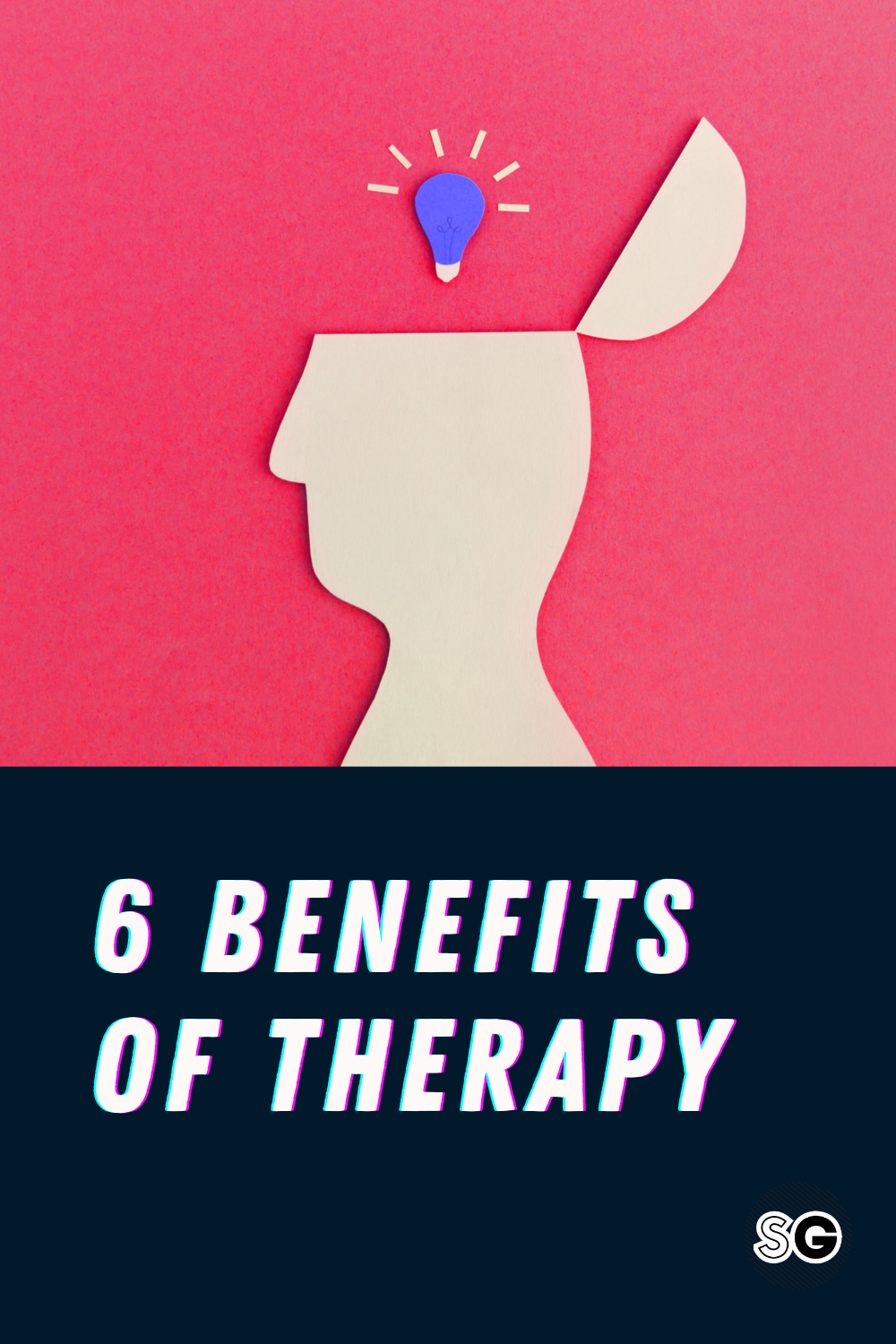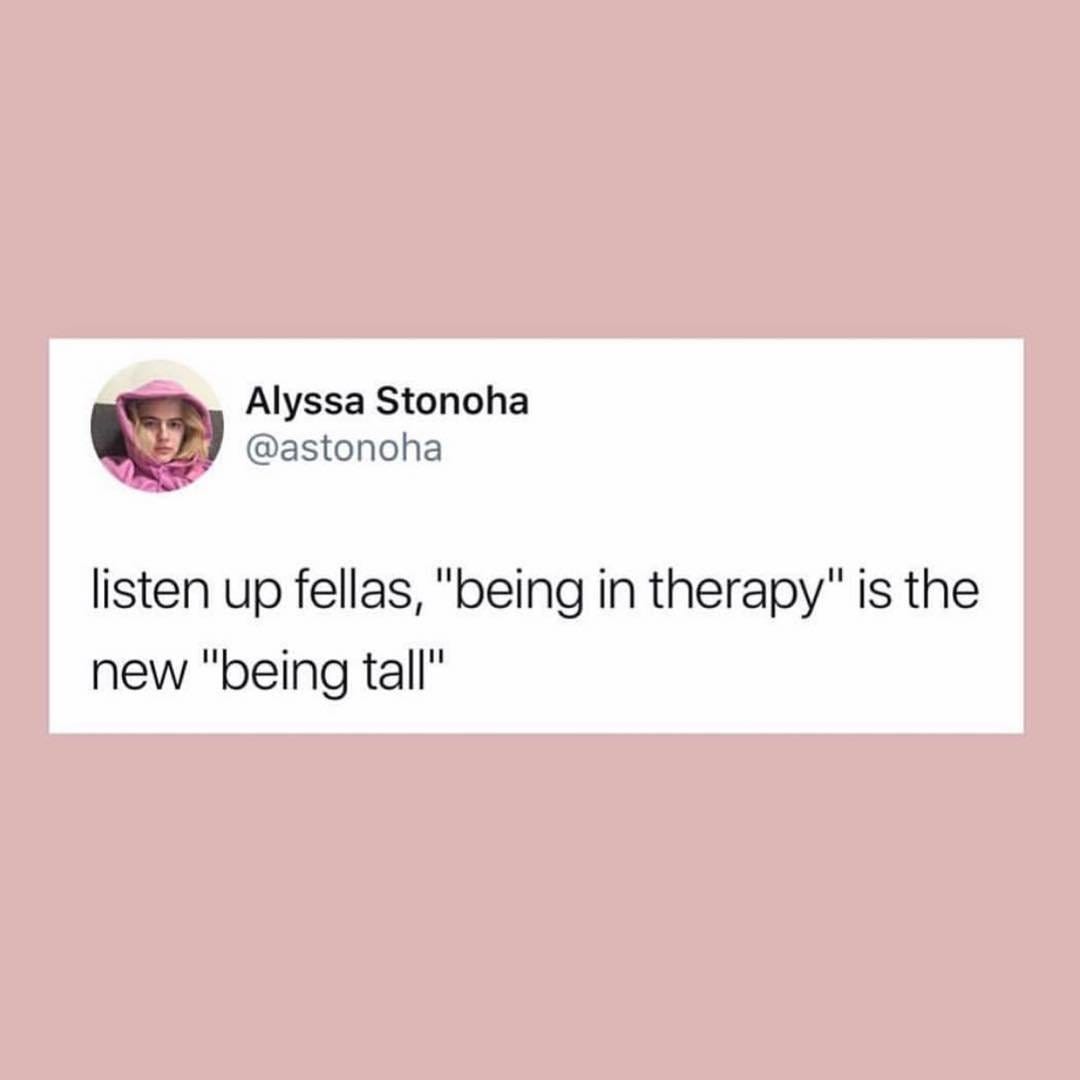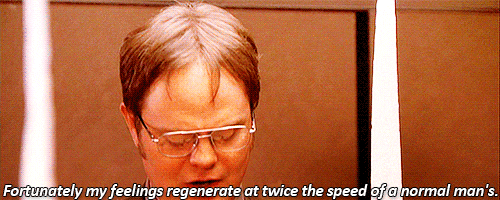The first time I went to therapy, I was in college. And I’ll be honest with you: I only did it for extra credit.
My Psych 101 professor offered up her undergrad students as guinea pigs to grad students training to be therapists in exchange for a small boost to our final grades.
My exact thinking went, Sure, why not?
I had no real “reason” to go but it couldn’t hurt, right?
Cut to a semester later, and I felt like I’d shed a skin.
In the matter of months, I had the confidence to join clubs where I didn’t know a soul and land a competitive job on campus. All thanks to a newfound sense of self-worth. The “I got this” vibes were just radiating off me.
This first brush with therapy quite literally propelled me into a deeper sense of clarity about my purpose, and a confidence I didn’t know I had been missing.
But that’s the thing about therapy — it’s not really about whether you “need” it or think you have issues “worthy” of therapy. Just like you need clean air to breathe and time each day to move your body in order to feel your best, you also need a safe space to communicate your feelings and learn how to process them.
So, we’re not talking about “if” you need therapy for mental health anymore.
Everyone, and I mean everyone, can benefit from focusing on your mental health through counseling with a trained professional.
Feeling curious about what therapy can do for you?
Check out 6 benefits of going to therapy for mental health:

…even (or is it, especially?) if you’ve never considered it before…
1. You’ll become a total babe magnet

The principle behind the law of attraction?
Like attracts like.
So imagine the type of woman you’ll attract when you’re bringing your best self to the table.
Self-aware! In touch with her feelings! Able to communicate in a mature, thoughtful way!
Now, obviously, you shouldn’t go to therapy to become some sort of player or pick-up artist — but real talk?
Ladies love an emotionally intelligent man.
There’s a reason articles like “Why I Will Only Date Men Who Go to Therapy” have been popping up more recently.
It’s becoming increasingly clear that romantic relationships benefit when each partner is actively committed to working on themselves.
Heading to therapy for mental health means you make yourself a more thoughtful, communicative future romantic partner.
2. You’ll have a safe space to work through issues in your current relationship

Already coupled off? Cool!
One of the best parts of seeing a therapist regularly is having someone to talk to about your partner without judgment!
At the risk of sounding like An Old™, there’s a TikTok trend I love where the user writes on-screen something to the effect of, “When you apologize, but I’ve already told my aunt/co-worker/mailman about you.”
The video then cuts to said-aunt/co-worker/mailman, and they lip sync to Nicki Minaj:
“Don’t be tryna double back / I already despise you!”
So yeah, complaining (or simply, venting!) about your partner to your friends and family doesn’t always bode well once you’ve resolved the issue with your partner.
Better to enlist an unbiased professional who won’t hold a grudge.
In therapy, there’s no need to concern yourself with sugarcoating the problems or worrying about turning your therapist against your significant other.
Truly, therapy is one of the very few judgment-free zones you can experience as an adult.
RELATED: How to Talk About Yourself on a Date
3. You’ll boost your career prospects

The improved communication skills you learn in therapy have positive effects across all your relationships, btw, not just the romantic ones.
The skill of articulating your worth, for example, can translate into faster promotions in your career.
More thoughtfully conveying your feelings can result in better camaraderie with your co-workers.
The list goes on.
So sure, you might not be namechecking your EQ on your resume anytime soon, but don’t sleep on the career boost that can be a side effect of regular therapy sessions.
RELATED: Why “Fake It Til You Make It” is Bullsh*t
People skills don’t just come from management training.
They can also come from learning about emotions and how to handle them more empathetically (and therefore, more effectively) in a work environment.
4. You’ll have more mental tools in your toolbox when hard times hit

If the pandemic taught us anything, it’s that a lot can change…fast.
Usually, you can’t affect what’s going on around you (unless you’re Dr. Fauci, I guess?!), but you can change how you react to it.
And your reaction to those challenges often determine the outcome experience.
From learning how to block negative thoughts to understanding your current barriers to personal or professional success, the issues you tackle in therapy can give you a sense of control when life throws crap at you.
A therapist can give you clear strategies to leverage when an issue arises so you can stop repeating behaviors that are holding you back.
Therapy can help you can gain a sense of control in an otherwise uncontrollable situation.
Like when you’re fired. Or someone in your family gets sick.
Learning how to deal with these scary moments without having to turn to less-than-healthy coping mechanisms like alcohol or aggression?
That’s powerful.
5. You’ll learn to offload outdated norms

While your first reaction to a situation might be to “suck it up”, that lack of vulnerability can be an obstacle to your own success and wellbeing.
Maia Illa, a licensed clinical social worker (LCSW, in therapy lingo), says, “Men face different social pressures to demonstrate their toughness, including being emotionally strong, which can also be a barrier in seeking help in the form of therapy… but once men are engaged in therapy with someone they trust, their commitment mirrors that of any client.”
The tl;dr?
Toxic masculinity is not a cute look in 2023, guys!
Working with a therapist can give you clear, healthy strategies to try when attitudes and behaviors that are holding you back arise.
6. You’ll physically feel better

Traumatic events and chronic stress can have serious effects on both the mind and body.
That frequent tension headache, the tightness in your chest — that’s your body signaling stress.
It’s easy to dismiss these symptoms as they arise, but they build up over time.
And before you know it, you physically feel like crap.
“It’s completely common for ‘physical’ health issues to arise in connection to mental well-being,” Illa shares.
With therapy, the goal is not to avoid those feelings, but rather work through them and create coping techniques to take better care of yourself when you’re experiencing heightened seasons of stress.
Whether you’re experiencing work stress or difficulty adjusting to the new normal of the pandemic, your mental health is often mirroring your physical health.
Meaning? Taking care of your mind can help you stay healthy physically, too.
***
So, now that you’re aware of some benefits of therapy for mental health, where do you actually start?
How to find a therapist

It’s a good idea to “shop around” for a therapist.
The first time I went to a therapist post-college, it took me several sessions to realize that person wasn’t a good fit for me.
I simply picked the first name covered by my insurance.
Efficient? Sure, but ultimately not a great strategy.
Instead, once you find which therapists are covered by your insurance (or which will take cash), put those Googling skills you’ve honed to good use and check out their backgrounds and specialties before making an appointment.
Even better, ask for a free phone or virtual consultation to get a feel for whether or not you two click.
While it can feel uncomfortable to try something new, you might just be surprised to find what aspects of your life improve by partaking in a regular couch confessional.





